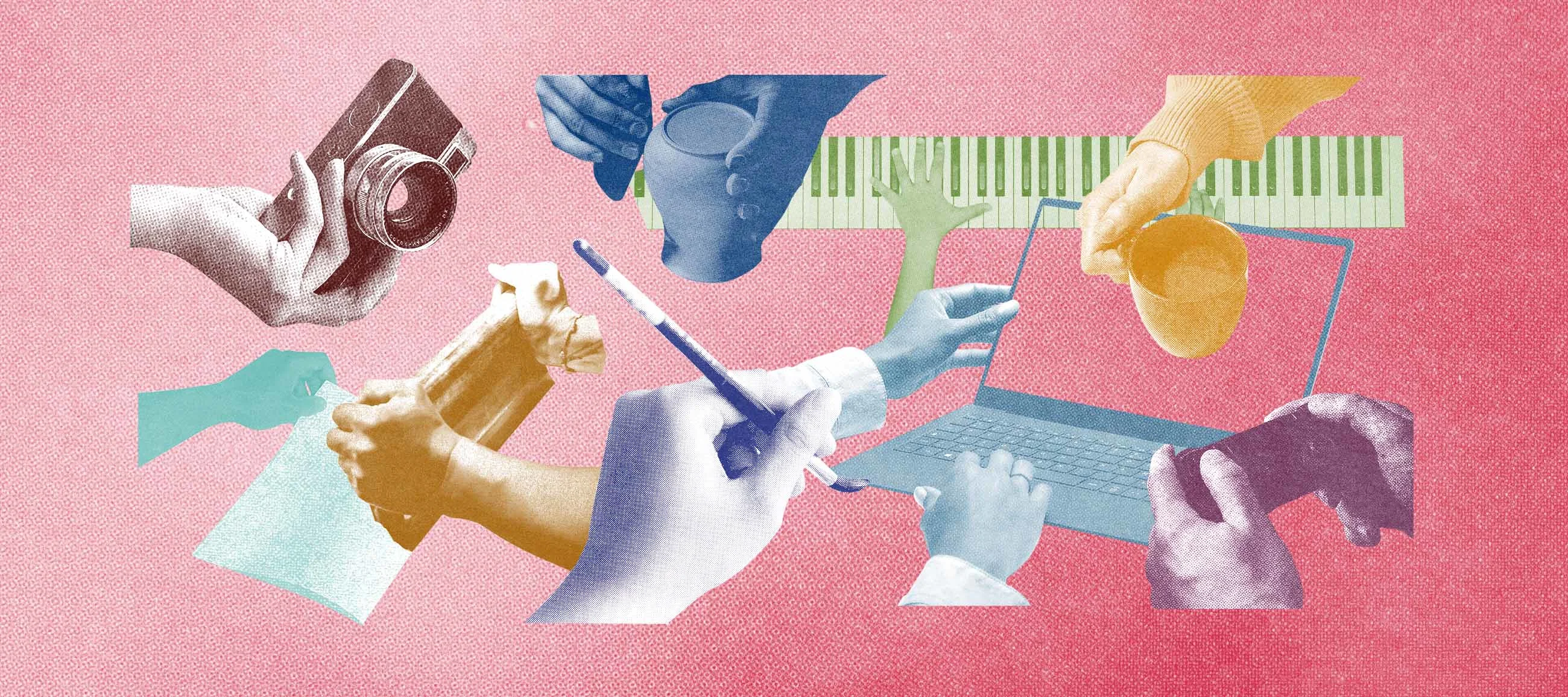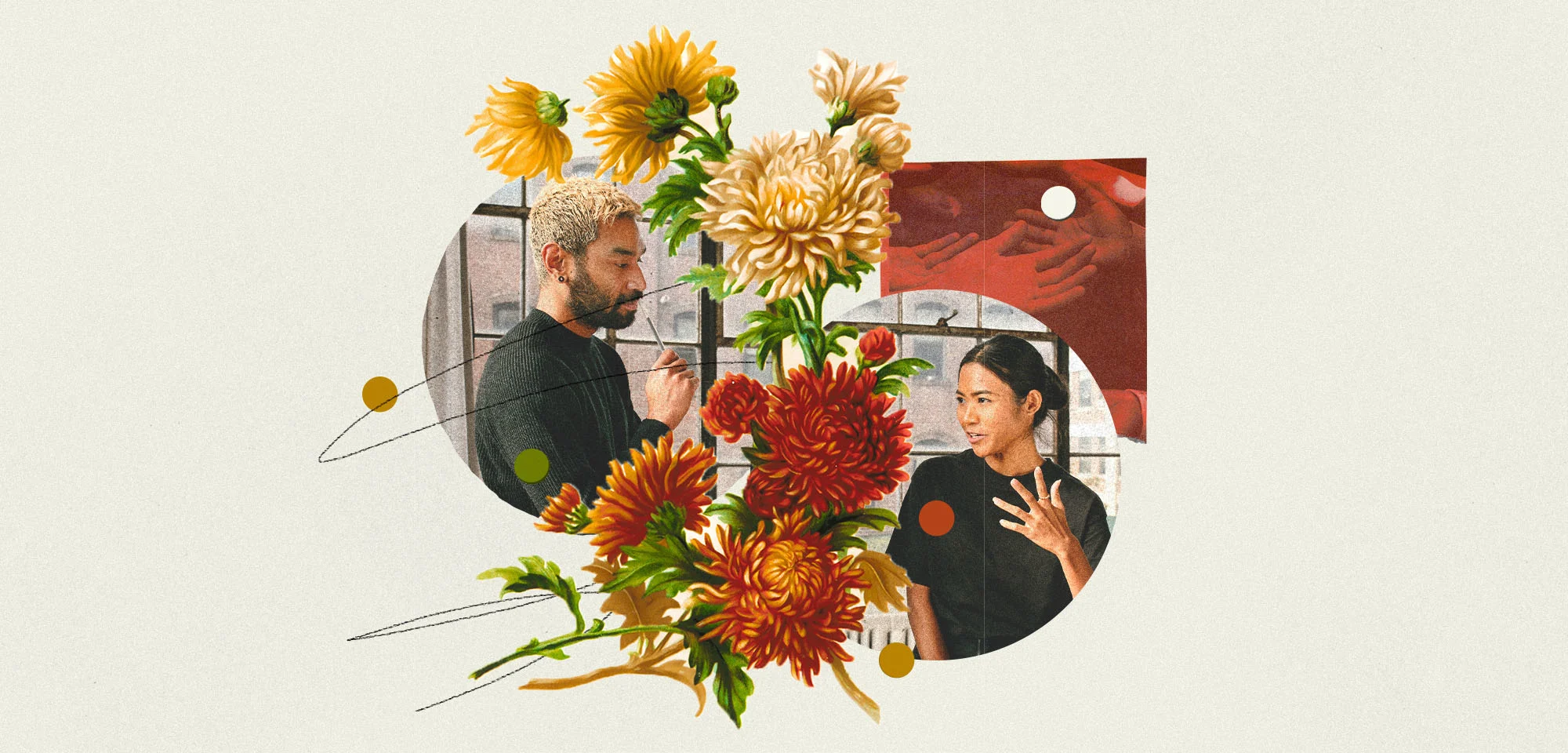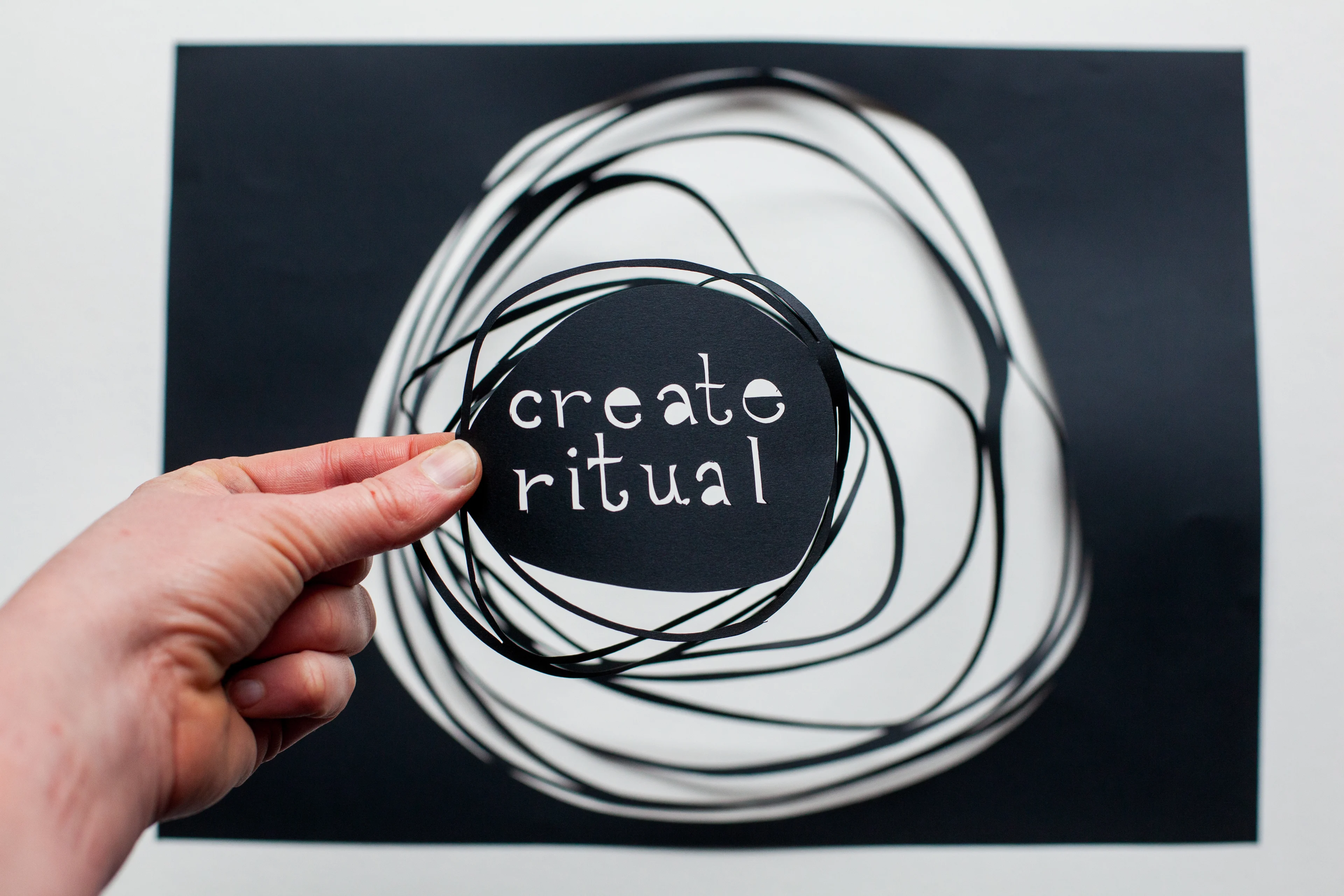How Do We Create the Elusive Work-Life Balance?
- 16 May 2022
- ByAnna Brones

In the modern economy, “work-life balance” is a popular buzzword, identified as an important part of mental health and an essential component of our overall quality of life. It is defined as “the amount of time you spend doing your job compared with the amount of time you spend with your family and doing things you enjoy.”
If you’re working as an independent creative, that definition probably feels a little murky. The likelihood is that your job involves some elements of things that you enjoy doing (making art, creating music, etc.), and creating work-life balance doesn’t always feel straightforward. So how do we create work-life balance?
The way we think about work and life has changed as the concept of work has evolved, and our pursuit of work-life balance is reflective of the modern way that we work. The term itself was actually popularized thanks to the Women’s Liberation Movement in the U.K. in the 1980s, part of a larger feminist push for flexible work hours and more family-friendly policies. “Feminist activism for what we now call ‘flexibility’ was part of a vision for remaking communities and supporting the needs of workers as whole human beings,” writes Sarah Stoller in the essay “The Flexible Work Fallacy.” Stoller continues, “In the decades since feminists first challenged the structures governing paid work, the vision at the heart of their campaigning has been lost… Ironically, piggybacking on feminists’ ideas about transforming paid work has done more to contribute to a 24/7 work culture than it has to opening up new options for women.”
That 24/7 work culture is something that most of us are probably familiar with, and it’s something that we have even come to glamorize in the form of “hustle culture.” While there’s an ever-growing critique of that kind of “performative workaholism,” it’s so embedded in our web of modern work culture that it’s hard to untangle ourselves from it. But that comes at a serious cost to ourselves and society.
Anne Helen Petersen’s famed 2019 essay about millennial burnout (that eventually spawned a book) touches on exactly that. “Why am I burned out? Because I’ve internalized the idea that I should be working all the time,” Petersen writes. “Why have I internalized that idea? Because everything and everyone in my life has reinforced it—explicitly and implicitly—since I was young.”
Petersen has become a respected voice on the topic of burnout and work, and pens the newsletter Culture Study. She recently gave a talk for librarians that she included in the newsletter because as she wrote, “I think you could substitute pretty much any passion job for ‘academic librarian’ here and the descriptions (and advice) will hold.”
If you’re an independent artist or someone who is selling creative work, we are certainly in the “passion job” category, so the whole piece is worth a read. But this line is particularly salient: “I often talk about burnout being the feeling of hitting the wall, then scaling the wall, and then—you just keep going, because what other choice do you have? And that’s where so many of us are: ground into a fine pulp of self with a striking resemblance to an actual human.”
We’ve probably all felt that at some point. Running your own business comes with its own set of complications, one of them being that it can often feel like there’s no “off” time. There’s no clocking in and clocking out, and there’s always something that could be done. If you didn’t set limits and boundaries, you could potentially always be working.
This is exactly what makes things like productivity tips and hacks so alluring. If we feel overwhelmed by what needs to be done, perhaps if we could just figure out the right way to do things, then we would be on a better path. There must be a great trick to work-life balance, right? There must be some way for us to be more productive and efficient with our work to be better able to prioritize all the life stuff?
Here is some straightforward truth from writer Oliver Burkeman: “Productivity is a trap.” In the introduction to his book Four Thousand Weeks: Time Management for Mortals, one of the most refreshing and honest books that I have read in a long time, Burkeman writes, “Becoming more efficient just makes you more rushed, and trying to clear the decks simply makes them fill up again faster. Nobody in the history of humanity has ever achieved 'work-life balance,' whatever that might be, and you certainly won’t get there by copying the 'six things successful people do before 7:00 a.m.' The day will never arrive when you finally have everything under control—when the flood of emails has been contained; when your to-do lists have stopped getting longer; when you’re meeting all your obligations at work and in your home life; when nobody’s angry with you for missing a deadline or dropping the ball; and when the fully optimized person you’ve become can turn, at long last, to the things life is really supposed to be about. Let’s start by admitting defeat: none of this is ever going to happen. But you know what? That’s excellent news.”
Understand Your Limits
It’s excellent news because if we can remove the expectations of all the things that we should be doing, then we can start to hone in on what’s actually important for us, both in our professional and personal lives, and in that place that’s usually between the two. Burkeman has five tools to employ to rethink work and time, all of which are focused around identifying and understanding our own limits.
As he writes, “Much advice on getting things done implicitly promises that it’ll help you get everything important done–but that’s impossible, and struggling to get there will only make you busier. It’s better to begin from the assumption that tough choices are inevitable and to focus on making them consciously and well.” Spend some time considering those tough choices and then commit.
Rethink The “Doing”
Hustle culture, and our modern Western consumer culture in general, is built upon the concept of “doing.” It requires us to be on and to be productive, and we’ve associated that with our own value. “I worked a long week” becomes a badge of honor, not a sign of missing some of the more essential parts of human existence. So what does it look like to do the opposite? “The practice of doing nothing has something broader to offer us: an antidote to the rhetoric of growth. In the context of health and ecology, things that grow unchecked are often considered parasitic or cancerous. Yet we inhabit a culture that privileges novelty and growth over the cyclical and the regenerative,” writes Jenny O’Dell in How to Do Nothing: Resisting the Attention Economy. “Our very idea of productivity is premised on the idea of producing something new, whereas we do not tend to see maintenance and care as productive in the same way.”
In terms of creative process and work, this can be particularly useful. Consider how you incorporate time for “nothing” into your work and life. Do you have time in your day to stare out the window and let your mind wander? Are you stuck in the busy-trap or are you able to block out some free, quiet space for yourself?
Keep Some Creative Projects Personal
If you’re running a business that’s dependent on creative output, like making art for clients or for new products in your shop, it can be easy to fall into the trap of making all creative endeavors work endeavors. Be protective of creative time that’s just for you. That can be a certain time in the week to experiment in the studio with no plans or expectations, a sketchbook that’s set aside just for fun, or an ongoing series of work that’s made just for your own consumption. Certainly, some of what you do in this personal creative space may end up informing your overall work, but the intent is process-focused as opposed to outcome driven.
Keep Adapting
What feels like a good balance one month may feel off kilter the next. Consider your own approach to work-life balance as more of a cycle than a fixed point, one that you regularly need to check in with and adjust.
After all, balance isn’t a fixed point, it’s the path you find through changes, adaptations, and modifications along the way.
16 May 2022
Words by:Anna Brones
- Share

